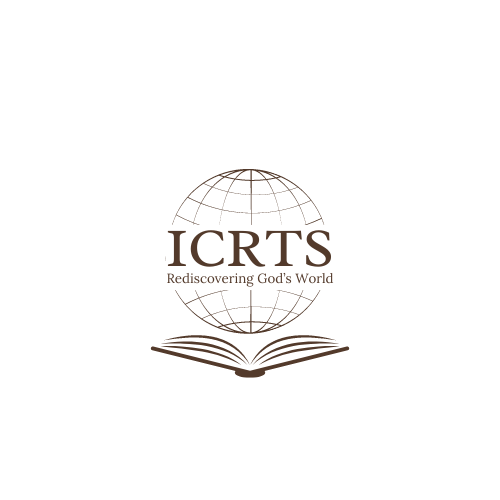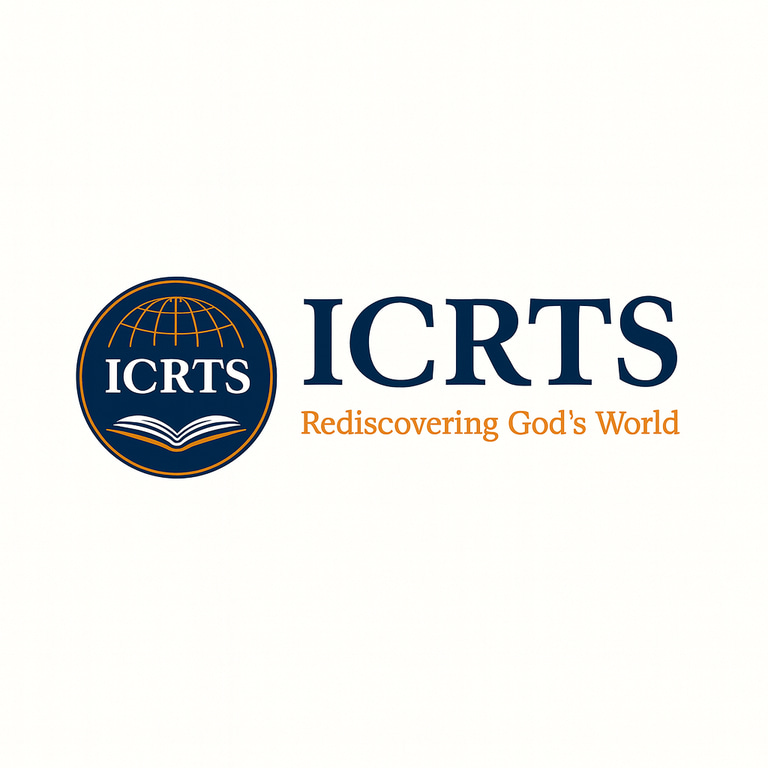Exploring Culture, Religion, and Theology: A Closer Look at ICRTS
How Does ICRTS Approach Its Research?
Alex R. Jaramillo, M.A.R., M.A.T.S.
12/31/20236 min read
If you are reading this blog, you've probably spent some time exploring ICRTS's website, which means you've become somewhat familiar with the mission and values of ICRTS. The fact that you're even on this website and reading this post indicates that you too share a passion for culture, religion, and theology, or at least are interested in such things. If that is the case, then welcome! We are glad that you are here! You may, however, have some thoughts about how ICRTS defines these three areas of study and what approach (or methods of study) ICRTS utilizes to conduct its research. Moreover, you may be thinking about the subcategories of these areas of study and how ICRTS plans to navigate such categories. Or, perhaps, you've simply stumbled across this page and as a base thought, you may be asking the question: "Why does any of this matter?" To help you get a better idea of who ICRTS is and why it feels so strongly about these areas of research, the following will look at each area of study and why ICRTS exists to explore these three facets of life.
Before looking at each of ICRTS's three main disciplines, the following statement will help get us started: ICRTS is dedicated to exploring the intersections, historical aspects, and human experiences of culture, religion, and theology. ICRTS believes that these three areas of life are always intersecting and thus cannot be completely separated. The intersection of these three facets of life happens either consciously or subconsciously, but it does happen. ICRTS also feels passionately about the historical aspects of culture, religion, and theology. As one of the biblical writers stated, "What has been is what will be, and what has been done is what will be done; there is nothing new under the sun" (Ecclesiastes 1:9, New Revised Standard Version).¹ Cultural, religious, and theological ideas have circulated for as long as humanity has existed. It would be wise to consider the historical aspects of these three important areas of study. This leads to the third part of the statement above, human experience. ICRTS recognizes that culture, religion, and theology are essentially human experiences. They cannot be separated from humanity. Thus, ICRTS takes an interdisciplinary approach to explore the effects of culture, religion, and theology on the human experience, why it matters, and what we as humans can learn from them.
Culture:
Culture has been defined as "The way of life of a people, including their attitudes, values, beliefs, arts, sciences, modes of perception, and habits of thought and activity."² This definition includes all general facets of a people group. Every single one of these facets is important to the identity of a people group. ICRTS especially recognizes the belief factor and how that factor influences all other aspects of life. Thus, ICRTS feels that it is vitally important to understand culture as a whole and how it influences and is influenced by religion and theology. The Evangelical Dictionary of Theology states, "Culture... [is] an interrelated community in which relations with God, the earth, and human beings all [play] a part."³ ICRTS recognizes this as a fact and thus believes that the study of culture is simply inseparable from the study of religion and theology.
Religion:
ICRTS agrees with Dr. Winfired Corduan, Professor Emeritus of Philosophy and Religion at Taylor University in Indiana, that the term Religion is difficult to fully define, but can be loosely summed up as "a system of beliefs and practices that directs a person toward transcendence and thus provides meaning and coherence to a person’s life."⁴ In a postmodern Western-influenced society, where the phrase "I'm not religious, I am spiritual" has been increasingly touted for some time now by the masses of younger generations, ICRTS stands in opposition, recognizing the religious undertones of a person's beliefs and values. ICRTS believes that religion is inescapable. Spirituality cannot be separated from religion. Therefore, where spirituality exists (and we believe this to be everywhere in life), religion exists and is an important area of study for understanding culture and theology.
Theology:
Theology is the "philosophically oriented discipline of religious [inquiry] and apologetics that is traditionally restricted, because of its origins and format, to Christianity but that may also encompass, because of its themes, other religions, including especially Islam and Judaism."⁵ ICRTS generally agrees with this definition. Indeed, theology has traditionally and mostly been associated with Christianity. However, more theologians and religious researchers recognize the importance of Theology's subfields, such as Comparative Theology.⁶ Comparative Theology does something similar to Comparative Religious Studies, in that, it looks at the theological implications of different belief systems. Another subfield of Theology is Integrative Theology, which seeks to understand the theological implications of fields such as philosophy, science, psychology, sociology, etc.⁷ Such fields are important to understanding the inner workings of culture and religion.
NOTE: While ICRTS takes an interest in these different approaches to Theology, we are still very much interested in "classical" Theology and will pursue an all-encompassing approach to our research in this field.
An Integrated Approach: Contextualization vs. Syncretism:
As has been mentioned previously, ICRTS takes an integrative approach to its three main disciplines. But what does that mean exactly? Well, for starters, it would be beneficial to discuss the concepts of Contextualization and Syncretism. It would be helpful to the reader to make clear from the start that ICRTS is not interested in syncretism. Syncretism, in its modern religiopolitical sense, "has generally referred to the replacement or dilution of the essential truths of the gospel through the incorporation of non-Christian elements."⁸ ICRTS stands firmly on its Christian identity and convictions and is not desirous of syncretizing religious beliefs.
"Generally, to contextualize an idea, statement or event is to place it within its larger setting in which it acquires its true and complete meaning. Contextualization aids comprehension."⁹ Contextualization is a more fitting description of what ICRTS seeks to do in its research and educational efforts. Contextualization allows for different cultural, religious, and theological views to be more rightly understood without the attempt to force a position on anyone. As a Christian institution, ICRTS believes that all truth is God's truth and can thus be communicated by whatever means God so finds to be suitable in His sovereign will. Contextualization allows for different cultural, religious, and theological traditions to define themselves without being misrepresented, and for the opportunity for objectivity to be rightly evaluated.
Conclusion:
ICRTS seeks to explore the intersections, historical aspects, and human dimensions of culture, religion, and theology. ICRTS strongly believes that these three fields of study cannot be separated. Each field's history is important to understanding the field properly. ICRST also sees culture, religion, and theology as essential human experiences, and thus each field of study plays an important role in understanding the whole of human experience. Culture plays a reciprocal role in its influence on religion and theology, and vice-versa. Religion can be difficult to define but is taken as an undeniable fact of the human experience. Theology is particularly important to ICRTS as it maintains a close relationship with ICRTS's Christian identity. ICRTS's integrative approach to its research in its three main disciplines takes a contextual perspective as opposed to a syncretistic one. ICRTS is not interested in "mixing" oppositional truth claims from different traditions. Rather, it is interested in understanding such claims in their own contexts and knowing how to better communicate them to different contexts.
We hope this has helped the reader to get to know more about ICRTS and its overall approach to its research and educational endeavors. If you are interested in collaborating with ICRST, please visit our "Collaborate" page and submit your information. Thank you for taking the time to read and getting to know us better!
Resources:
Unless otherwise noted, The Scripture quotations contained herein are from the New Revised Standard Version Bible, copyright © 1989, by the Division of Christian Education of the National Council of the Churches of Christ in the U.S.A., and are used by permission. All rights reserved.
Simon Blackburn, Oxford Dictionary of Philosophy, 2nd ed., (New York, Oxford University Press, 2005), 86.
Walter A. Elwell, ed., Evangelical Dictionary of Theology, 2nd ed., (Baker Academic, 2001), 227.
Winfried Corduan, Neighboring Faiths: A Christian Introduction to World Religions, 2nd ed., (Downers Grove, IL: InterVarsity Press, 2012), 27.
Helmut Thielicke and Andrew Louth, "Theology," Encyclopedia Britannica, January 18, 2024, accessed February 10, 2024 https://www.britannica.com/topic/theology.
Francis X. Clooney, “Comparative Theology: A Bibliographic Review,” Theological Studies 56, no. 3 (September 1995), 521, accessed February 10, 2024, https://www.bc.edu/bc-web/schools/morrissey/departments/theology/areas-of-study/comparative-theology/comparative-theology-a-bibliographic-review.html#:~:text=As%20one%20of%20the%20theological,questions%2C%20methods%2C%20and%20vocabulary.
Elwell, Evangelical Dictionary, 1,188.
Ibid., 1,158.
“What Is Contextualization?,” GotQuestions.Org, accessed February 11, 2024, https://www.gotquestions.org/contextualization.html.


